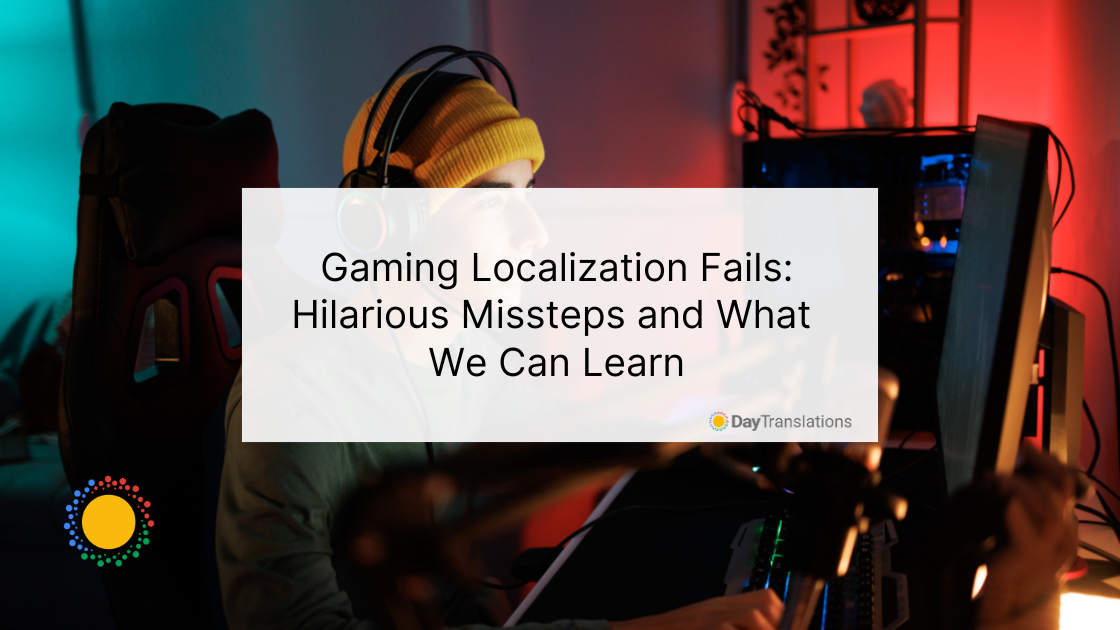Localization is an essential part of the gaming industry. It’s the process of adapting a game to fit different countries’ language, culture, and customs. But, as anyone who has experienced awkward translations or confusing game dialogues can tell you, localization doesn’t always go as planned. When localization is done right, players feel immersed in the game, regardless of where they’re from. When it’s done wrong, the results can be laugh-out-loud funny—or totally disastrous. Let’s dive into some of the most hilarious gaming localization fails and discover what we can learn from them.
What Is Gaming Localization?
Before we jump into the missteps, let’s understand what game localization actually is. Localization is more than just translating a game’s text from one language to another. It involves changing things like:
- In-game dialogues
- Instructions and tutorials
- Cultural references and jokes
- Characters’ names and appearances
- Visual cues like signs or billboards
The goal is to make the game feel like it was made for the specific country or region it’s being released in. However, when companies rush through localization or misunderstand cultural differences, the results can be pretty comical.
Hilarious Gaming Localization Fails
1. “All Your Base Are Belong to Us”
One of the most famous localization fails in gaming history comes from the 1989 arcade game Zero Wing. Originally developed in Japan, the English translation of the game’s introduction sequence became an internet meme due to its awkward and broken English.
Instead of a smooth and dramatic intro, players were greeted with lines like:
“Somebody set up us the bomb.”
“All your base are belong to us.”
The grammatically incorrect phrases turned what should have been a serious moment into something completely ridiculous. While it gave players a good laugh, it also showed the importance of accurate translations in making a game feel professional.
2. “Congraturation! You Success!”
Another classic example of poor localization comes from the 1986 game Ghosts ‘n Goblins for the NES. After players completed the difficult final level, instead of being rewarded with a satisfying message, they saw this puzzling phrase:
“Congraturation! This story is happy end. Thank you.”
It’s easy to see that this was a direct translation from Japanese, with no attempt to make it grammatically correct in English. Instead of being proud of their victory, players were left scratching their heads—and probably laughing at the odd choice of words.
3. Pokémon’s Strange Name Changes
The Pokémon franchise is one of the most popular gaming series ever, and for the most part, its localization is well done. However, in the early days of the series, there were a few name changes that didn’t quite hit the mark.
One of the most famous examples is the Pokémon Koffing and Weezing, which in the Japanese version were originally named “Ny” and “La,” likely referencing the smoggy cities of New York and Los Angeles. When these names were localized for an English-speaking audience, they were changed to something more fitting for poisonous gas-filled Pokémon. While Koffing and Weezing are clever names, the original names left fans puzzled and amused.
Why Do Localization Fails Happen?
1. Direct Translations Don’t Always Work
A big reason for localization fails is the over-reliance on direct translations. Different languages often have phrases, idioms, or cultural references that simply don’t translate well. This is how we end up with phrases like “All your base are belong to us.” Translators might take the words literally without adjusting the structure or meaning for the target language, leading to funny and sometimes confusing results.
2. Lack of Cultural Understanding
Games are often full of cultural references—things like jokes, holidays, or even food choices that can differ from country to country. Without understanding the target audience’s culture, these references can easily fall flat or be misunderstood. For example, a game released in Japan might reference a popular Japanese TV show, but when localized for the U.S., that reference might not make sense to American audiences.
In some cases, references have to be completely changed so they make sense in the new region. When this isn’t done well, it can lead to confusion or unintended humor.
3. Tight Deadlines and Budgets
Localization can be expensive and time-consuming, and game developers are often under tight deadlines. Sometimes, localization teams are forced to rush through translations or use cheaper, less-experienced translators. This can result in awkward wording or errors that make it into the final game.
When corners are cut, players often notice—and it’s not always in a good way.
What We Can Learn From Localization Fails
While these localization mistakes are funny, they also teach us important lessons about how to handle game translation and adaptation:
1. Quality Matters
Localization isn’t something that should be done quickly or cheaply. It requires skilled translators who understand both the original language and the target language. More importantly, they need to understand the cultural differences between regions to ensure that the game’s message, humor, and tone are correctly conveyed.
2. Test Your Localization
Game developers should always test their localized versions before release. This includes having native speakers from the target region play through the game to spot any awkward phrasing, cultural mismatches, or incorrect translations. Involving local players can help catch mistakes that translators may overlook.
3. Respect Cultural Differences
Developers need to take the time to understand the culture they are localizing for. This goes beyond language—everything from gestures to symbols to colors can mean different things in different places. Paying attention to these details can make the game more relatable to players worldwide.
Final Thoughts on Gaming Localization
Gaming localization mistakes can turn serious moments into comedy gold, but they can also break a player’s immersion in a game. While we love to laugh at these hilarious errors, they highlight the importance of proper localization in creating games that resonate with a global audience. Whether it’s translating a few lines of text or reworking an entire cultural reference, attention to detail and a deep understanding of the target audience are key to getting it right.
So, the next time you come across a wonky translation in your favorite game, have a chuckle—but remember, there’s always a lesson to be learned behind the laughter!











